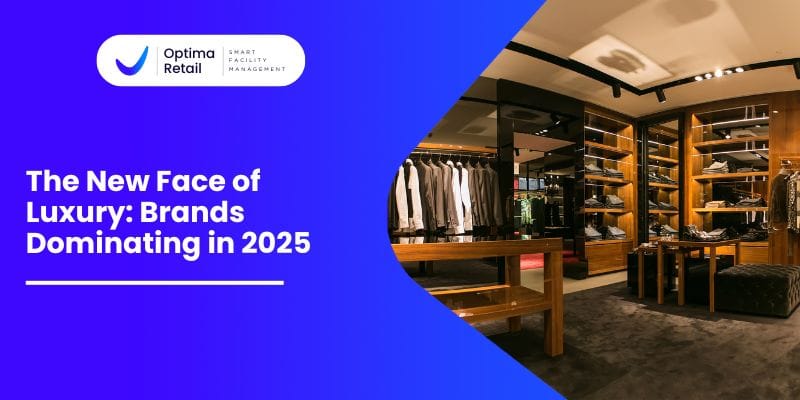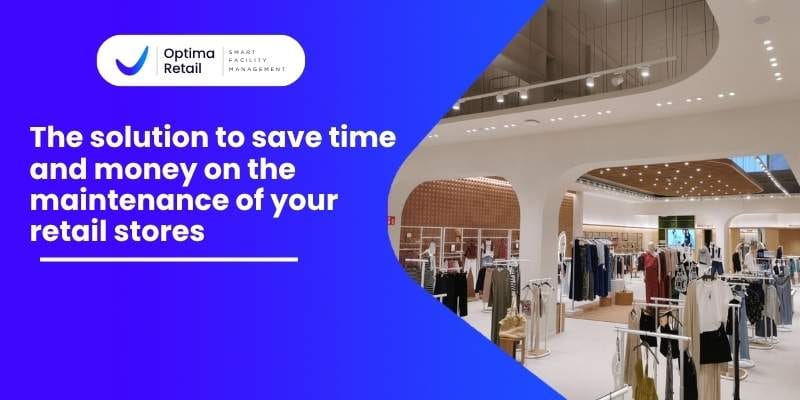Unveiling the Retail Trends of Tomorrow: A Glimpse into the Future Shopping Landscape
Welcome to the future of retail! In this article, we take you on a journey into the realm of tomorrow’s shopping landscape, where technology, innovation, and consumer preferences converge. Brace yourself as we unveil the retail trends that will shape the way we shop and interact with brands.

Virtual reality (VR), augmented reality (AR) and artificial intelligence (AI) are creating immersive shopping experiences that blur the lines between the physical and digital worlds.
Personalization takes centre stage as brands strive to deliver personalized experiences, catering to the unique needs and preferences of individual buyers. From personalized product recommendations to personalized marketing campaigns, retailers are leveraging big data and predictive analytics to anticipate customer desires and provide a seamless shopping process.
Brands must adapt quickly to changing consumer expectations, ever-evolving technology and global events. Sustainability and social responsibility become an integral part of business strategies, as conscious consumers demand transparency and ethical practices from the brands they support.
shopping & the e-commerce boom
The e-commerce industry has also witnessed the emergence of new business models, such as dropshipping (a system in which the company selling the product acts as an intermediary between the consumer and the supplier. The shop receives the order, manages the payment, performs all the fulfillment and sends the order to the supplier, who is responsible for the preparation and delivery of the items) and subscription-based services..
Dropshipping allows entrepreneurs to start their own online stores without having to invest a lot in inventory. Instead, they partner with suppliers who handle the storage, packaging and shipping of products directly to customers.
This model has opened up opportunities for small businesses and individuals to enter retail space with minimal risk.
Subscription-based services, on the other hand, offer a curated selection of products or services delivered to customers on a recurring basis. From food kits to beauty boxes, these subscription services offer a personalized and convenient shopping experience that is tailored to the specific needs and preferences of consumers.
As e-commerce continues to evolve, retailers are exploring new technologies to improve the online shopping experience. Augmented reality (AR) and virtual reality (VR) are being integrated into e-commerce platforms, allowing customers to view products in their own environments or test them virtually before making a purchase.
“This immersive experience bridges the gap between online and offline shopping, offering customers a more interactive and engaging way to shop”
Technological developments shaping the retail industry
“Retailers are harnessing the power of AI to analyze large amounts of data and gain valuable insights into consumer behavior, preferences and trends”.
This data-driven approach allows retailers to deliver personalized product recommendations, targeted marketing campaigns and personalized shopping experiences tailored to each customer’s unique needs.
Chatbots (a chatbot is a computer programme that uses artificial intelligence (AI) and natural language processing (NLP) to understand customer questions and automate responses to those questions, simulating human conversation) and AI-powered virtual assistants are also becoming increasingly common, providing instant customer care and assistance, further enhancing the overall shopping experience.
Integrating AI into retail operations improves efficiency, increases productivity and ultimately drives customer satisfaction.
In addition to AI, the Internet of Things (IoT) is another technology trend that is reshaping the retail landscape. IoT allows devices to connect and communicate with each other, creating a network of smart devices that can collect and share data.
This connectivity allows retailers to optimize inventory management, automate supply chain processes and create a seamless multi-channel shopping experience.
For example, smart shelves equipped with RFID tags can track inventory levels in real time, alerting store employees when replenishment is needed. Connected devices can also provide personalized recommendations based on a customer’s previous purchases and preferences, making the shopping experience more comfortable and personalized.
In addition, blockchain technology (blockchain is an immovable and shared ledger that facilitates the process of recording transactions and tracking assets in a business network) is gaining ground in the retail industry, providing greater security, transparency and traceability. Blockchain allows retailers to track the entire life cycle of a product, from sourcing to delivery, ensuring it meets ethical and sustainable standards.
Customization and customization in retail
Personalization goes beyond simply addressing customers by name
It involves understanding your preferences, anticipating your wishes and providing recommendations that align with your interests. This level of personalization requires a deep understanding of customer data and the ability to analyze it effectively.
One way retailers achieve personalization is through collaborative filtering algorithms, which analyze a customer’s past behavior and preferences to make recommendations for similar products.
These algorithms are often used by e-commerce platforms to suggest products in which customers are likely to be interested based on their browsing and purchasing history. Retailers also use machine learning algorithms to predict customer behavior and optimize marketing campaigns.
By analyzing data such as demographics, browsing patterns and purchase history, retailers can segment their customers into different groups and target them with personalized messages and offers.
Another aspect of personalization is personalization, which allows customers to create products that are exclusively theirs. From customizable sneakers to custom skin care products, brands offer options for customers to design and customize products based on their preferences.
This level of personalisation not only enhances the overall shopping experience, but also establishes a deeper emotional connection between the customer and the brand.
With advances in technology, personalisation is becoming increasingly accessible and affordable, allowing retailers to offer customised products at scale.
The importance of sustainability in the future of retailing
As the world becomes more environmentally conscious, sustainability has become an important consideration for consumers when making purchasing decisions.
Retailers are recognising this shift in consumer behaviour and are incorporating sustainability into their business strategies. From eco-friendly packaging to choice of materials, retailers are adopting practices that reduce their environmental impact and meet the growing demand for sustainable products.
By prioritising social responsibility, it builds trust, enhances brand reputation and attracts socially conscious consumers.
Mobile shopping and the impact of smartphones on retailing.
The widespread adoption of smartphones as a way to pay for your purchases has given rise to mobile commerce, or ecommerce. Mobile devices have become an integral part of the shopping experience, allowing consumers to browse and purchase products on the go.
In addition, blockchain technology (blockchain is an immovable and shared ledger that facilitates the process of recording transactions and tracking assets in a business network) is gaining ground in the retail industry, providing greater security, transparency and traceability. Blockchain allows retailers to track the entire life cycle of a product, from sourcing to delivery, ensuring it meets ethical and sustainable standards.
The role of artificial intelligence in the future of retail
Artificial intelligence (AI) is revolutionizing the retail industry, allowing retailers to analyze large amounts of data and gain valuable insights into customer behavior, preferences and trends. AI-driven algorithms can process and interpret data much faster and more accurately than humans, enabling retailers to make data-driven decisions and deliver personalized experiences at scale.
The future of physical stores
While e-commerce continues to thrive, physical stores still have a place in the future of retail. However, their role is evolving and retailers must adapt to changing consumer expectations and preferences.
Physical stores are no longer just places to browse and shop; they are becoming experiential destinations that offer unique and immersive experiences.
Finally, sustainability is also becoming a focus for stores. Retailers are implementing green practices such as energy-efficient lighting, recycling programs and sustainable materials in store design and construction. By prioritizing sustainability, physical stores can reduce their environmental impact and align with environmentally conscious consumer values.
Prepararse para el futuro del comercio minorista
The 5 keys:
- The future of retail is full of exciting possibilities. As technology continues to advance.
- The rise of e-commerce, the integration of AI and IoT, and the emergence of AR and VR are reshaping the way we buy and interact with brands.
- Personalization, sustainability and mobile shopping have become crucial considerations for retailers as consumers seek personalized experiences and socially responsible brands.
- Physical stores are becoming experiential destinations that offer immersive, community-driven experiences.
- As the retail landscape continues to evolve, retailers must stay agile, leverage technology and prioritize customer-centric strategies to thrive in the future of retail.
Meet Optima Retail: Comprehensive maintenance service that has no borders
Experts in retail maintenance and repairs worldwide. SMART FACILITY MANAGEMENT
A service designed to meet the main challenges of retail maintenance
With a global presence in more than 50 countries, more than 20,000 professional technicians, more than 100,000 interventions annually and an overall score of 4.8/5, We are committed to providing our customers with a unified service and fully adjusted to the speed demands of retail.
Why should you be impatient?
Because predictive maintenance not only helps you keep your equipment running smoothly, it also helps you save time and money. Who doesn’t want that, right?
With predictive maintenance, you can monitor the status of your equipment in real time and anticipate potential failures before they occur. This means less downtime, less maintenance costs and more efficient production. It’s like having a superpower for your retail!


